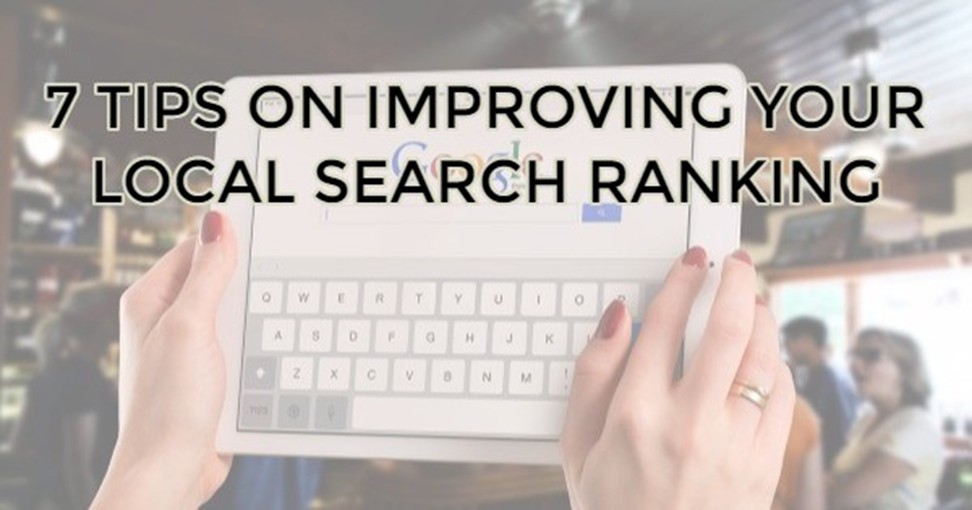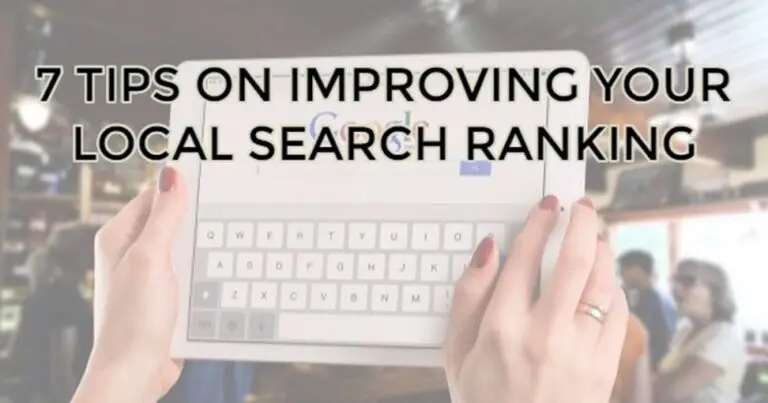Get More Customers at Less Cost
Most businesses want to improve their search engine optimization (SEO). It means more customers at less cost, and almost everyone wants more customers. But how you improve your organic reach on a global scale is different from how you do it on a local level.
While the two have some things in common, you can usually affect your local rankings much faster than the larger scale ones. You’ll generally see movement in a handful of days, assuming your local competition isn’t busy doing the exact same thing.
Seven Quick Steps to Better Rankings
Improving your local rankings isn’t magic, although it can feel that way. What it takes is consistent, targeted action.
Reviews
Most business owners hate to hear how important reviews are, because they need to encourage people to leave them. But if you believe in the service and/or product you’re providing, it’s not an imposition, but a way your customers can help others. A carpet cleaning company I’ve used places a request for reviews on its business card. “Like your service today? We’re a small business and could use your help. Please review us on Yelp.” A miniature golf course I visited on vacation had table tents with QR codes directed to review sites for easy access. While people enjoy their ice cream and sit at the table, they can quickly visit TripAdvisor or Yelp and leave their review.
Encourage customers to create a review while it’s convenient for them, and the fun is fresh in their minds. It’s the best way to ensure you’ll receive the most reviews.
Get Creative with Keywords
Sometimes the keyword you assume should be your top word isn’t the best way for people to find you. Take for instance, a home designer. If you search “Home Designs” or “Home Designer,” there are pages and pages of big-name design plan companies and review sites like Houzz. It is impossible to compete with their ad budgets, so home designers would want to focus on local instead.
To improve your local search listings, think of the question(s) people would ask to reach you, and add a local flair. For instance, in this case, you might use long-tail keywords like “house makeover Bandon.” You’ll have to play around with it and use a keyword research tool to pinpoint what works best for your area and industry.
Going Local
Now that you know what keywords work, you’ll need to add that information to your content and website. You’ll get the most bang for your buck by creating content that uses your keywords in headers, page titles, and blog titles. Vary your usage of these words. Don’t use an identical keyword phrase each time.
Next, you need to claim your business in the most popular directories. We mentioned Yelp and TripAdvisor, but there’s also Facebook, your local chamber(s), Bing, Yahoo, and more. Don’t forget your industry listings. Make sure your information is complete and up-to-date on these directories or sites.
You also want to keep a list of them. If you ever move or need to update information, it will be much easier if you know which platforms and directories you have profiles on.
Be Helpful
When people leave a review, comment on it. If it’s positive, thank them. If it’s negative, try and solve their issue. While these comments usually don’t equate to better SEO, platforms like Facebook are timing you on your response. Being responsive is important to word-of-mouth referrals and your standing.
Look for Friends
Is there a business in your town that you could partner with? You could create an affiliate program or just exchange content. Links are still important, so turn to local business friends with complementary businesses and ask if they’d be willing to list your business and link to you in a resource section. Keep in mind you need links from reputable websites, and be choosy about who you ask.
Optimize Your Social Profiles
Fill in all the information on social media profiles. Add websites. Use keywords and keyword phrases in your “About” sections. Search engines also pull from these.
Be Consistent
The more bait you have in the water, the more likely you are to get a bite. Create quality content on subjects of interest to your audience. The more they share and interact with it, the more it will circulate, and search engines will pick it up. Good content chums the waters, attracting attention.
A Final Word About Improving Your Local SEO
When creating good content for local search, make sure you do more than just add the name of your town in your copy. You should include other telltale signs that you know the area. You could mention streets, popular things to do, nearby towns, etc. The search engines are getting more sophisticated, and dropping in a town name at the end of every blog post won’t win you any attention, at least not the kind you want.
Article written by Christian R Metcalf, courtesy of Chamber Pros Community.





